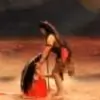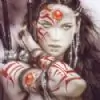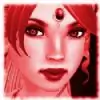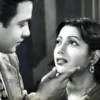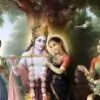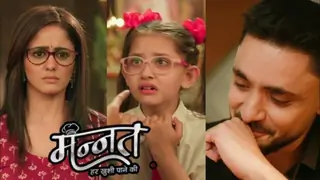"Andhe ka Putra Andha"
This term is extremely popular and attributed to Draupadi. When Duryodhan stayed behind at Indraprastha after the Rajasuya Yagya, he saw many wonderful things at the Pandavas' capital including the famous Mayasabha.
At the Mayasabha, Duryodhan was taken by the illusionary sights. He mistook hard floor for a pond of water, lifter his garments while walking lest they get wet. But the four younger Pandavas who were accompanying him smiled and corrected his understanding. In the next room, he thought he was walking on hard floor but which instead was a pond. He fell unceremoniously and got fully drenched. The twins and Bheem laughed heartily but Yudhishthir frowned and ordered fresh clothes to be brought for him. Duryodhan seethed inside but outwardly laughed and took the dry clothes.
At the next place, he stood waiting against what he thought was a closed door but banged himself on what he thought was an open door. Sahadev laughed and told him, "This is the door, O King!".
BRC in his serial Mahabharat showed that Draupadi was watching all this and laughed deliriously and then uttered the fateful words, "Andhe ka putra andha" (a blind man's son is also blind). But these words do not find substance in the original texts, i.e., all the reputed translations.
Pranshu Saxena attributes that the above term was invention of Dharmaveer Bharati. Dharmaveer Bharati was a modern Hindi poet, author and dramatist. For years he was the editor-in-chief of the weekly magazine "Dharma Yug", a Times of India publication. "Dharma Yug" was equivalent to "The Illustrated Weekly of India" (e-in-c - Khushwant Singh), a very popular weekly magazine. These two magazines dominated the journalism world in the 60's till early 80's. He used the above phrase in his play "Andha Yug" (The Age of Blindness).
But the real fact is that neither Draupadi, nor any of her maids (as shown in Star Bharat) uttered these words.
https://www.facebook.com/MahabharatKiGalatiyan/posts/531335160312704


